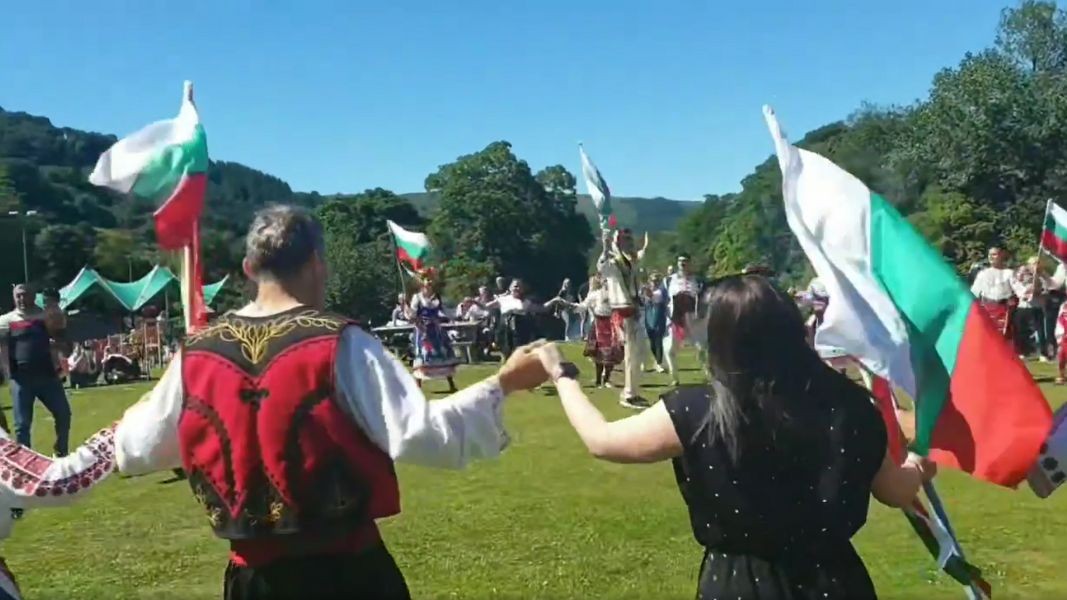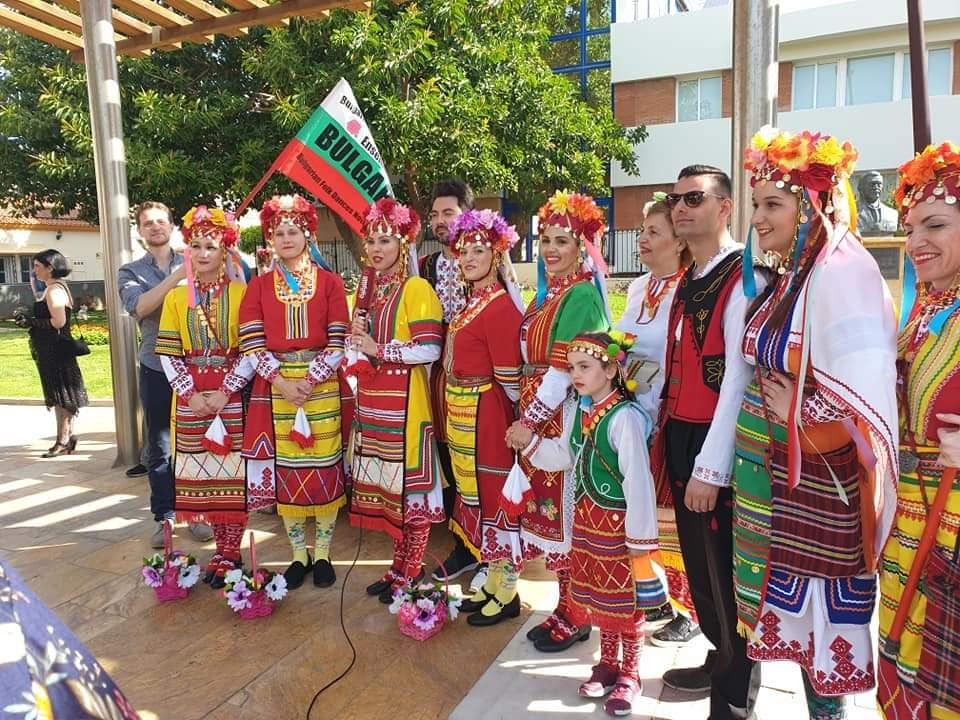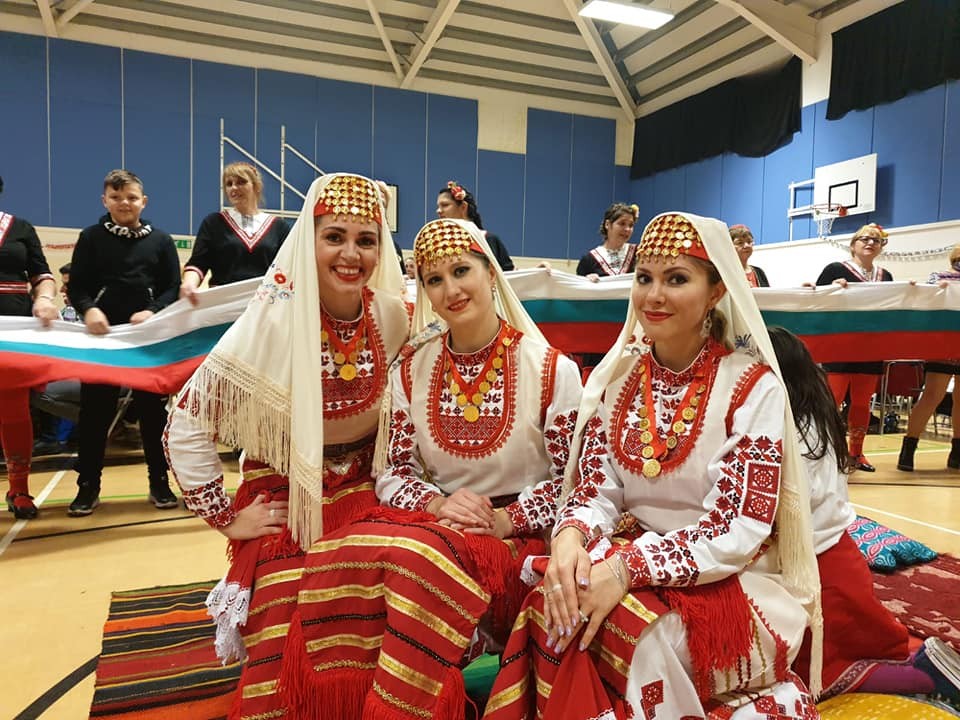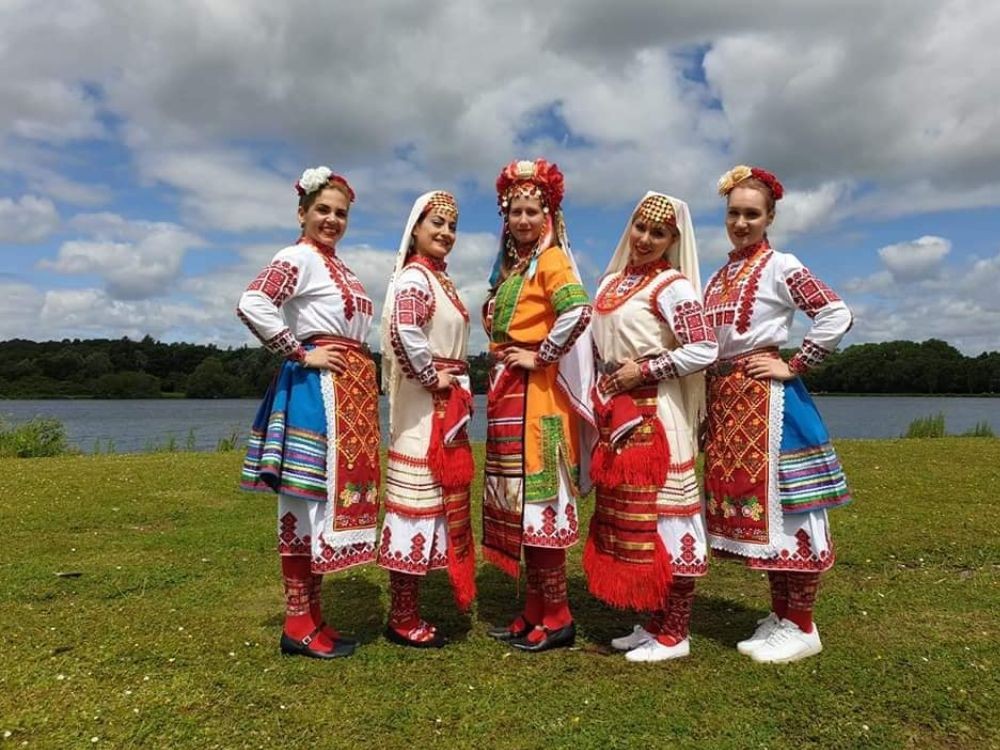Traditional folk music and dance have always been part of the emotional identity of Bulgarians. This is especially noticeable when their life path has taken them away from their roots, from the land where their heart beats to the rhythm of folk songs.
There is no celebration, gathering, wedding or even New Year's Eve without the horo chain dance as the ultimate expression of active communication, togetherness and a sense of belonging. A feeling of being in your place and among your own - the secret ingredients of a healthy and stable society. Especially today and especially here. The gathering of the Bulgarians of the North of Bulgaria is on the occasion of Liberation Day on March 3, but will be held on March 4 in the city of Derby in Central England.
The gathering of the Bulgarians of the North of Bulgaria is on the occasion of Liberation Day on March 3, but will be held on March 4 in the city of Derby in Central England.
Children and adults, Bulgarians and guests of all nationalities, groups and individual dancers, professionals and amateurs are all welcome to participate in the festival. They will be invited to immerse themselves in an atmosphere of unbridled joy and celebration. The traditional dances of this folk area are distinguished precisely by their free movements, high jumps, wild whirling steps, which are associated with letting go of worries, everyday life tasks and indulging in joy and merriment.
And all this fun will be accompanied by the pleasure of wearing an authentic Bulgarian costume from this region. This is a characteristic feature of the events organized by the Association - says its chairman Violeta Ivanova. She herself founded the organisation after realising that there was a great need among the Bulgarian community in the UK for events where fellow Bulgarians could not only sing and dance Bulgarian folklore, but also wear costumes, recreate folk customs and thus proudly declare their national belonging to the local communities.
"Because when you're away from home, that's important," Violeta tells our colleague Ina Nikolova from BNR-Stara Zagora. The Bulgarian was born in Silistra, but has lived abroad for the past 30 years, most of them in the UK. She founded the Association at the end of 2016.
"I decided to create a group, I wrote an ad in the groups of the Bulgarians in England and after three days I already had 16 volunteers. At that time we didn't have a meeting room, so I invited them to my home, set up tables in the kitchen, made dinner so we could get to know each other, and that's how we decided to start a dance group - the Bulgaria-Nottingham Folk Ensemble and Association - BULGARIAN COMMUNITY MIDLANDS CIC. They were fast learners and soon they learnt a few horo dances, Christmas was approaching, so we had to make a celebration - I started to order costumes, bagpipes, drums, instruments. My parents sent all the heirlooms my Dobrudja relatives had - rugs, tablecloths, belt buckles and shoulder poles. The costumes arrived on December 3, and on December 4, 2016, our first reunion took place." Today our association is the largest and most active in England," says Violeta. Its members come from all walks of life - engineers, lawyers, doctors, teachers. The money they raise from tickets to the various events is used to buy mainly folk costumes and accessories. Today they own more than 100 national costumes. "We are one of the few who offer the authentic experience of dancing in a Bulgarian costume, holding the long national flag, singing the national anthem and shedding a few tears," says Violeta with emotion in her voice.
Today our association is the largest and most active in England," says Violeta. Its members come from all walks of life - engineers, lawyers, doctors, teachers. The money they raise from tickets to the various events is used to buy mainly folk costumes and accessories. Today they own more than 100 national costumes. "We are one of the few who offer the authentic experience of dancing in a Bulgarian costume, holding the long national flag, singing the national anthem and shedding a few tears," says Violeta with emotion in her voice. Because we miss our homeland very much. We have created schools and associations here to keep our traditions alive, to be close to our roots, to preserve our Bulgarian identity and culture, because we are far away and cannot attend festivals in Bulgaria. This is what we miss," says the Bulgarian.
Because we miss our homeland very much. We have created schools and associations here to keep our traditions alive, to be close to our roots, to preserve our Bulgarian identity and culture, because we are far away and cannot attend festivals in Bulgaria. This is what we miss," says the Bulgarian.
At the end of May last year, at a Bulgarian Association event in Derby, participants set a new record for the highest number of Bulgarian horo dances - 106. For nearly eight hours, more than 300 people from across England, Scotland and various parts of Europe danced to the rhythm of Bulgaria. And although foreigners find the uneven beat of our folk music difficult to dance to, the excitement of the experience proved more memorable and important than knowing the correct dance steps.
Love blooms with renewed vigour every year on 14 February! Valentine's Day is increasingly being celebrated in Bulgaria as a holiday that inspires lovers to share beautiful moments together. Traditions include the exchange of cards, gifts and romantic..
From February 14 to 16, an event under the motto "Love and Wine" will allow Sofia residents and guests of the city to combine the Bulgarian holiday of wine Trifon Zarezan with Valentine's Day. It will be held on the pedestrian zone..
World Radio Day - 13 February, this year is dedicated to climate change. The choice is no coincidence—2025 has been identified by the Paris Agreement as a crucial year for humanity to achieve its long-term goal of limiting global warming to a maximum of..
Easter 2020 went down in history with two things. The first was the state of emergency, introduced due to the Covid-19 pandemic that..
152 years after Bulgaria lost its beloved son and advocate for a free, independent and tolerant state – Vasil Levski, his personality continues to excite..
152 years after the death of the Apostle of Freedom, the personality of Vasil Levski continues to excite Bulgarians, regardless of whether they are in the..

+359 2 9336 661
